|
“Losing a partner in a same-gender relationship is every bit as devastating as losing a husband or wife: you may experience all the same feelings as the surviving partner of a marriage or other heterosexual partnership… but can you count on the same support if you are lesbian or gay?” Lesbian and Gay Bereavement Project leaflet (September 1988). Source: Wellcome Collectio In April 2024. I spent three amazing days looking through some of the the Switchboard LGBT+ archives from a few years in the 1980s, and found some incredible and heartbreaking stories. This is where I discovered the Lesbian and Gay Bereavement Project, created by Dudley Cave. Cave, one of the original committee members of the London Gay Switchboard (now Switchboard LGBT+) and a regular telephone volunteer, spoke with LGBTQ+ people who had lost their partners grieving without support and being excluded from funerals, losing inheritances and facing eviction from joint homes. He created the Lesbian and Gay Bereavement Project. The project was the first of its kind to be established in the UK, and the first organisation with ‘gay’ in the title to gain charitable status in the UK (despite pushback from the Charity Commissioners to change the name). The aim of the project was to give “support at a time when it might seem that all friends had deserted”, helping people right from the first few hours and days of a bereavement. This included practical help: finding a minister of religion or a secular officiant to look after the funeral (“someone who will understand and approve the love felt for the dead partner”), as well as registering the death and talking to funeral directors, (sourced from the Hendon Edgeware Independent, 2 February 1984). The snapshots of stories from the Lesbian and Gay Bereavement Project and from the pages of the Switchboard logbooks talk about LGBTQ+ widowhood and anticipatory grief. Some are of their time, and tell of the homophobia and the legal challenges that were more common before civil partnership and same sex marriage. Because of this, Cave would recommend to all LGBTQ+ people that they should make wills and keep them up to date, name their partner as next of kin going into hospital, however short the stay or minor the procedure. Others are stories of heartbreak that mirror those of bereaved LGBTQ+ people today. The snapshots that follow are rewritten and anonymised. “My girlfriend and I were together for six years. When I arrived at her funeral her mother shouted at me, telling me that I had no right to be there. At the inquest of her suicide, they asked me if we had made love that day, and whether we had any ‘normal’ friends. My family told me that they were glad my partner was dead, and that perhaps I might now marry a good man and have his children. My mother even turned up at the door with a man, to fix me up on a date. At least work treated me well – I'm a teacher – they said I could take as long off as I wanted.” “My boyfriend – he was my teacher – died. I have no support as not everyone knows that I am gay. I feel really guilty about the age difference, and my friends and family aren’t giving me any support.” “My best friend has AIDS. I’ve already lost four friends in two years. I can’t cope. I don’t know whether I want to go on if everyone I love is dying.” “My partner has cancer of the bones. This is probably her last weekend. She just wants to talk but I am terrified – I can’t even stay in the same room as her. My Catholic parents say that her cancer is a punishment for us being lesbians, and that we will burn in hell.” “We didn’t make wills and I’m not allowed to attend the funeral.” “I didn’t do enough.” “I’m sorry – I’m crying – it’s so embarrassing.” “It’s 13 months on and I feel I should be doing better by now.” “It was a very good funeral – we had a gay vicar.” “We’ve been together since we were 17.” “The family took over the funeral.” “I’m not eating.” “The Church of Christ found out that I was gay, and now they want to get me out of the accommodation.” “I’m a Spiritualist, but I don’t want him to come to me.” “They left his coffin alone in the chapel – it felt like they were abandoning him.” “I met him on holiday. He was killed in an accident on the way to the airport to come to see me. I have lost our future.” “We lived in his house, but when he died, I had to give the keys back. We’d had a row and he changed his will, leaving it all to charity. I only have my disability pension now.” “He died of AIDS in hospital. When I took him there he felt that I was sending him away but I just couldn’t manage on my own any more. He didn’t want to die – it wasn’t a blessed release.” “My girlfriend died of breast cancer. I can’t speak of my loss to anyone.” “He died by suicide. When he came out to his parents, his mother was fine but his homosexuality concerned his father. She’s managing all right with her grief but she can’t cope with his father’s unwillingness to talk about their son. He finally allowed her to put up a picture in the hall, but she’s not allowed to put one up in the living room. I think she’s dreading Christmas.” “We had no wills and the relatives are threatening to come and take everything. I’ve hidden our valuables.” “He was killed in a car crash. I’m angry – he was a stupid driver and his car went under a lorry.” “He died of AIDS. He supported me when I lost my job. I as asked not to go to the funeral, even though we lived together for five years. I’m numb, and I think I’m going to lose my home.” “He was a heroin addict. I feel I’m to blame for his death.” “There was no will. It all went to his nephew.” “The dog keeps looking up at the corner of the room. I’m not religious, but…” “We’ve been together for 40 years since we left the forces. I can’t go on.” The Switchboard LGBT+ and Lesbian and Gay Bereavement Project archives, along with archives from the Terrence Higgins Trust and others, are held at the Bishopsgate Institute, a beautiful Victorian building in the City of London. The institute is home to one of the most extensive collections on LGBTQIA+ history, politics and culture in the UK. The building flies the progress Pride flag, and the archives room is lined with a huge variety of LGBTQ+ flags.
0 Comments
Dudley Cave: Born London 19 February 1921; died London 19 May 1999 Dudley Cave was born in London in 1921, and worked for Odeon Cinemas when he was young. He was conscripted into the Army in 1941 and served in the Royal Army Ordnance Corps as a driver. Until 1999, there was an official ban on lesbians and gay men serving in the Armed Forces. Despite this, and despite the homophobia back in the UK, according to Cave, homosexual officers were more or less accepted. Even when ‘caught in the act’, they may get a reprimand, be transferred to a new unit, or be given hard labour to turn them into ‘real men’ "People were put in the army regardless of whether they were gay or not", said Cave. "It didn't seem to bother the military authorities. There was none of the later homophobic uproar about gays undermining military discipline and effectiveness. With Britain seriously threatened by the Nazis, the forces weren't fussy about who they accepted... They used us when it suited them, and then victimised us when the country was no longer in danger. I am glad I served but I am angry that military homophobia was allowed to wreck so many lives for over 50 years after we gave our all for a freedom that gay people were denied." Taken from a piece by Peter Tatchell Cave was taken prisoner by the Japanese in 1942, and was assigned to the construction of the Thai-Burma railway, not far from the renowned bridge over the River Kwai. He was then sent to Changi Prison in Singapore after a serious bout of malaria, where he stayed until the end of the war. He lost four stone – one third of his body weight – and was close to death from malnutrition. In Changi, an army medical officer gave him a copy of Sexual Inversion by Havelock Ellis, and this helped him to accept his sexuality. Cave was repatriated after the end of the war, in 1945.
Back in the UK, there was still a lot of discrimination against gay people. In 1954, Cave was asked to resign from his job as manager of Majestic Cinema in Wembley, London. When he refused, he was given the sack. Also in 1954, Cave met his partner, Bernard Williams. Williams had married his wife, June, to try to ‘overcome’ his sexuality. June understood, and the three became close friends, living together in Golders Green. Cave and Williams stayed together as lovers and gay rights campaigners until Williams’ death in 1994. In 1971, Cave joined the Unitarian Church, and was key to them ordaining lesbians and gay men, blessing same sex relationships and advocating for LGBTQ+ human rights, even before legal recognition of same sex relationships. He created Intergroup, which brough together LGBTQ+ and straight Unitarians to promote acceptance and foster dialogue, one of the first groups of its type. He campaigned for peace and reconciliation between Japanese soldiers and prisoners of war, and he attended the dedication of a Buddhist temple on the banks of the River Kwai as a symbol of this reconciliation. Cave was one of the original committee members of the London Gay Switchboard (now Switchboard LGBT+) at its launch in 1974, and he remained answering phones until his death. Through the calls he took, he saw LGBTQ+ people who had lost their partners grieving without support and being excluded from funerals, losing inheritances and facing eviction from joint homes. To meet their support needs, he created the Lesbian and Gay Bereavement Project. The project was the first of its kind to be established in the UK, and the first organisation with ‘gay’ in the title to gain charitable status in the UK (despite pushback from the Charity Commissioners to change the name). Another of his campaigns was to get the Royal British Legion, the UK Government and the Armed Forces to acknowledge that LGBTQ+ people served in the Armed Forces and lost their lives. Not long before his death he spoke at OutRage!'s Queer Remembrance Day vigil at the Cenotaph, and laid a pink triangle (the symbol worn by LGBTQ+ prisoners in concentration camps) to honour the lives and deaths of LGBTQ+ people. Sources: The Yorkshire Unitarian Union BBC: A gay soldier’s story Obituary: Dudley Cave (Peter Tatchell) Peter Tatchell on Dudley Cave (video) Thank you to the amazing members of the WAY LGBTQIA+ group for their help in writing this piece.
Being widowed is one of the hardest things that people have to face. Being widowed as a member of the LGBTQIA+ community can make things even harder. I’d hoped that things had changed from the 1980s stories of LGBTQIA+ widows that I collected from the Switchboard archives, but the challenges are still there. Coming out again… and again… and again… Coming out is never is a one-time thing, but after someone dies there is even more coming out to a lot of new people, from hospital staff and paramedics through staff at registry offices and funeral directors to the people celebrating the funeral. Are you a widow? As far as the Widow’s Handbook is concerned, you are a widow if you have lost your partner, whether you are married, civil partnered or neither, and LGBTQIA+ or not. But legally, the wording does differ – if you were in a civil partnership, the wording will describe you as the surviving civil partner, not the widow. Are you the husband/wife? There’s a lot of explaining relationships after the death of an LGBTQIA+ partner. People on the other end of the sadmin process, such as banks, utilities and government bodies, can assume the gender/sexuality of both the widow and the person who has died, even when they have details of names, genders and relationships. From Joanna Sedley-Burke in an interview for the Widow’s Handbook for Pride 2023: “When I went to register Paula's death, I was asked if I was her daughter or her mother. When I started the admin after her death, on the very first call when I said that I was a widow, the immediate response was 'when did your husband die?' I know that same sex marriage was relatively recent then, but it put another layer on something that was already hard.” LGBTQIA+ partners, if not married or civil partnered, may not be informed of deaths, given invitations to inquests, told of autopsy results, allowed to register deaths, or allowed to organise (or even attend) the funeral. Arranging a funeral A Church of England funeral is available to anyone in their own parish, whether they were churchgoers or not. A funeral in a different denomination or in another religious building may depend on the willingness of individual religious leaders. People say the oddest things People say a whole raft of things they shouldn’t when faced with a widow, but being an LGBTQIA+ widow brings a whole other level of statements, from being told by a registrar ‘I’ve not registered one of you before’, through ‘are you even a man or a woman’ or ‘partner… do you mean business partner?’, to a colleague bursting out ‘but I didn’t even know that you were gay’. Homophobia and biphobia can emerge – there can be assumptions that because people are queer they must have been promiscuous during their relationship, so being an LGBTQIA+ widow isn’t as big a deal as being a cis/straight widow. On being told that I was bisexual, an acquaintance in the pub assumed that must have been sleeping with women while I was married to Tim. Some years ago I wrote a monologue, The Hourglass, about widowhood and disenfranchised grief. About a woman who could not tell anyone that her lodger was actually the woman she loved, and who loved her.
Disenfranchised grief or hidden grief is grief that isn't recognised by other people, because they don't see it as significant, or it is a grief that isn't or can't be made public. Some widows experience disenfranchised grief when they lose a partner who is not recognised as a partner to the outside world. This could be because they were separated or divorced at the time of death, together for only a short time, or together but could not admit that they were together because of cultural or social pressures. People who are lesbian, gay, bi and in a same sex relationship, but aren't out. People who are trans, or in a relationship with a trans person, and aren't out. People who are in a poly relationship. People who are having an affair. People who lose a friend with benefits. Disenfranchised grief can also be associated with losing someone when they were involved in a crime, or killed in a violent crime, who had addiction issues, who had mental health issues, or who died by suicide. Coping with disenfranchised grief People experiencing disenfranchised grief may not be able to have an involvement in a funeral or wake, and may even be excluded from any of the mourning rituals. Creating your own mourning rituals to honour their loss can help, from planting a tree, through fundraising or donating to charity, to walking in a favourite place. If you have someone you can talk to, let them know how you feel. Talking to a therapist might also help. Please remember You are a widow* and are welcome here if you have lost your partner. Young or old or somewhere in between – you are a widow. Committed to each other for a few months, or the whole of your life – you are a widow. Living together or living apart – you are a widow. Going through tough times when they died – you are a widow. Queer or straight – you are a widow. Cis, trans, non-binary, agender, gender-expansive, gender-fluid, intersex – you are a widow. Childless, child-free, have children or have lost children – you are a widow. In a traditional or a non-traditional relationship - you are a widow. Got another partner or are dating, or haven't got another partner, don't want another partner or don't want a traditional relationship – you are a widow. Days in or decades in – you are a widow. *I use 'widow' as a non-gendered term I moved house a fortnight ago, from the house that Tim and I bought to house his bookshop, and where he died suddenly and unexpectedly, to a house near the sea that I hope that my wife and I will make into our forever home. The whole process, from making the decision that we wanted a house that was chosen by both of us, rather than chosen by me, to opening the door here for the first time, actually only took around seven months, but felt so much longer. It was exhausting and involved builders vanishing leaving work unfinished, arguments with the local National Park Authority, and solicitors (not ours) causing delays. It was also a very emotional process, as it meant moving away from a friendship group that carried me through some really hard times, as well as leaving behind a place that had been very important to Tim and me.
I got rid of a lot of stuff, because that’s what you do when you move, and some of that was a huge wrench. But it also was oddly freeing at times. Packing felt interminable, and every time I thought I was nearly there, I turned round and saw more. Dee fell ill with a horrible viral infection, and then I got it two days before completion date. But we got there. The wife, dogs and the van went off, leaving me alone in the empty house with the cats. Friends scooped me up, fed me and gave me a bed. And then on the day of the move, I drove 146 miles in a two-seater sports car packed to the gunnels with all the last bits and pieces, along with a pack of cold and flu capsules, a lot of Haribo, and two profoundly irritated cats. One sulked, the other yowled for 93% of the journey, and glared silently for the other 7%. I was worried that I would lose Tim in the move, and in some way, lose me as well. But now the house is beginning to feel like mine, rather than someone else’s. I have my office in place. There are touches of Tim here. And the sulking cat is asleep on the bed. Joanna Sedley-Burke is a Trustee of Widowed & Young and became the chair in July 2021. She talked to The Widow's Handbook about her wife Paula, and about being an LGBTQ+ widow. You and Paula were part of the campaign for same-sex marriages in the UK Yes. We collaborated with the Stonewall campaign for civil partnerships, and then for same sex marriages. We were lucky enough to be the first civil partnership at The Ritz in London, and we where then invited to be one of the first five same-sex marriages at Westminster. Whilst we were married for 11 years, we were together for 20 years. I am lucky to be able to say that her family have been nothing other than supportive; in fact, they call me their fourth daughter. Tell me about Paula's illness Paula had autoimmune conditions, including Crohn's disease and ankylosing spondylitis, and she had a number of flare ups over the years we were together. She wasn't well, but she wasn't seriously ill by any means. Back in February 2017 she was having chest problems, and we went to A&E, where she was X rayed and they told us that there was nothing wrong. We went home. Paula clearly still wasn't well. We went back in and they did more blood tests. We were told at this point that she had an infection, but they weren’t about to specify where, and they sent us home with antibiotics. She got worse during the following week, and they finally diagnosed a chest infection, and gave her different antibiotics. But her breathing got worse, and I called 999. We were blue-lighted into our local hospital and went straight into the resus unit. At this point they did more X-rays, which showed a shadow on her lung, indicating pneumonia. We were relieved as there was a fear she had sepsis. They put Paula on oxygen, and it must have helped because she demanded a roast chicken dinner. She never lost her sense of humour, all the time that she was ill. The doctor said that she would probably in for a number of weeks because of her compromised immune system. I went home, and I tried to call her mobile later, but there was no signal. The next morning I called the hospital and they said she'd had a quiet night, and to call back in half an hour. When I did, her speech was slurring a bit, but she was like that when she was hungry. An hour later I received a call asking me to come in and talk to the doctors. She had developed hypoglycaemia which then triggered sepsis. She was already underweight, and the infection set off a downwards spiral. The nurses had paged the doctor, but sadly no one responded to the call out. Paula died five minutes after the hospital called me. What were the issues that you had with the hospital? Three months later my mother-in-law told me that the hospital had called her indicating that the X-ray had shown that there was a problem. I put in a complaint to say that they should not have divulged this to her mother. Not only was she in her late 70s with a heart condition, but more importantly I was Paula's next of kin. In my head this was a breach of confidentiality. The hospital's response was that they could as because Paula had died, it was no longer a data breach. I requested all of her medical notes and much to my horror I found out that the hospital had put a DNR [do not resuscitate] in place. Paula and I had discussed this, and I could not believe that she would ever have asked for it. She hadn't mentioned it to me. The hospital had referred itself for a serious incident investigation. This review took months, and when I saw the report, I couldn't believe it. They spelled my name wrong, said that I was the husband, got Paula's date of death wrong, and said that I had put the DNR place. It was as if it was written about a completely different person. This really wasn't a proper investigation, and had 48 major errors in it, despite it having been read and approved by six different senior managers in the Trust. Going through the report just left me reliving the original trauma, and the way I coped was treating it as if it was a work project. I had to detach myself. Did they finally get a revised report to you? I finally managed to get a revised version of the report after four months. I questioned everything that had happened. Finally, the Trust admitted that the doctor had put the DNR in place without discussing it with anyone. Luckily for me, I had a medical friend look through the information. One thing that was particulally hard was finding out that the X-ray that had been taken in February had shown evidence of a shadow, but that this hadn't been passed on to Paula's GP, so nothing was ever done with the results. However, something that did help was my friend telling me that when the doctor finally saw Paula on the ward as part of the rounds, she was already at a point where she could not have survived. That she was just going to fall asleep and never wake up. What did you do next? I wasn't happy with how things had been handled and after months or formal complaints not being dealt with appropriately, I went to the Parliamentary and Health Service Ombudsman (PHSO), and they were amazing. I felt zero discrimination, and I felt that I was working with someone who was doing it for me and for Paula, and doing it to bring about policy change. We made the hospital's life hell, because I felt that if it could happen to Paula, it could happen to anyone, as nothing had changed in the hospital's processes. Eventually the PHSO found in my favour, and I take some consolation that the hospital was forced to change its processes and systems to avoid these errors happening again. How is being a widow in a same sex marriage different to a heterosexual widow? It sometimes feels like you are having to come out all over again. And again. But without the excitement of that first coming out. Perhaps as a response to years of lived experience and of unconscious bias, there were times during Paula's illness and after her death where I started to doubt myself, or ask myself 'would you have done that if I was straight?' After her death, when I went back to work, the response of one of my colleagues to the news was 'but I didn't know that you were gay', as if that information trumped the news of her death. And that left me feeling that the most important thing about me was that I was gay, not that my wife and partner of 20 years had died. When I went to register Paula's death, I was asked if I was her daughter or her mother. When I started the admin after her death, on the very first call when I said that I was a widow, the immediate response was 'when did your husband die?' I know that same sex marriage was relatively recent then, but it put another layer on something that was already hard. Some businesses had it right. John Lewis for one, they train their staff in dealing with people who are grieving. But others were harder. When I cancelled her phone contract, I wanted to be assured that her number wouldn't be handed on to anyone else, and that took almost as long as probate. How did you find WAY and what were your first impressions? I found it by accident, through a friend's sister, but I didn't get involved initially, because I thought it was a dating group for straight people! There certainly weren’t any resources for LGBTQ+ widows. I suspect I also didn't want to accept that I was a widow. But I went back and joined a few months later and found my fears completely unfounded. The support and friendship have been a life saver for me. Just having people who ‘get it’ is invaluable. WAY has shown me that I am valued. I’ve never been one to stand in the shadows and when I looked at the trustees and saw older white men, I contacted the then Chief Executive Rebecca Cooper and talked to her about diversity. She invited me to join the board. Five years' on, WAY has a wonderful LGBTQ+ widows' group that is a safe space, and we are working to improve our diversity. This is the second of a two-part guest blog post by Maria Margetts - the first part is here. Maria is a WAY Ambassador representing the widowed LGBTQ+ community The second year of grief started better. I suddenly found (or rather she found me) a new partner. A blind date went up on one of our Widow's Facebook groups and someone said they fancied me. Only one person had shown any interest, so I said her name and was told "yes it's her, go and talk to her". So we had our first chat and one of the first questions that she asked was about some photos that were on my old Facebook profile. The pictures were of me at a Comic Relief Day at work. My wife had arranged with my colleagues to dare me to come into work in 'drag'. These photos were from 1995 and I was still very much in the closet. I was very much in my element but so scared that people would get that this was the real me. She asked me whether I did this often and I admitted to my blind date that yes, this was part of me and had been for a long time. She accepted that, we talked more, and she became my girlfriend. The first time she came to my house she was a little freaked out when she saw my walk-in wardrobe. The one side that still had my wife's clothes, the smaller section was held male clothes, and then boxes and boxes of MY clothes. With this she realised it wasn't just a 'knicker fetish' – this really was part of me. Over the next 18 months our relationship grew, and we each supported the other in our grief. My feelings about who I was, and who I wanted to be were allowed to also grow as my partner slowly came to terms with my other side. I went out shopping as Maria and I was so pleased with how I was. After some prompting from a widow friend and my partner I came out as Trans to one of my Widow Facebook groups. Suddenly I went from perhaps 10 people knowing to 400+. Out of those 400 I had only person who made some awful comments. That person is no longer in my life. Six months after this I came out at work and 2000+ people got to know me as Maria. I changed job in November 2019, starting as my old self, but after three days I picked up a security pass for me as Maria and I never went back as my old self. Since January 2020 I have only been Maria. I got rid of my old clothes within three months and I asked my GP to put me forward for gender reassignment. It's been three years and I haven't heard anything back, such is the queue for this consultation. I may be waiting another five years or more for that first consultation. But there's nothing I can do to make this go faster. I have to wait, but I'm waiting as me. I am Maria. I changed my name in July 2022 and that statement is official. Another step along the way to where I want to be. It's been eight years since my wife died and it's not been plain sailing, by any stretch of the imagination. My son has grown up, having gone through his own grief and adversity, and now has his own little family. I don't see him much now but I've been there for him whenever he has needed me, for whatever reason. My daughter still lives with me and has caused me a lot of strife over the years. And yes there have been times when I've wished it was me that died, that I know Mandy would have coped so much better with my daughter and her special needs. Or maybe not. We will never know. This is the first part of a two-part guest blog post by Maria Margetts - the second part is here. Maria is a WAY Ambassador representing the widowed LGBTQ+ community In February 2015, after seven years and two bouts of cancer, my fabulous wife Mandy died and my world turned upside down. She looked after the house; she looked after my kids and I. She loved me and I couldn't see how I could live without her. It wasn't until I was a few months down the line that I realised how much this was true. Six months after Mandy died I found WAY (Widowed and Young), joined and I got to listen to hundreds of voices who sounded like me. That were going through the same things as me. And I realised I hadn't grieved, and I crashed and burned. My first December, first Xmas without her, her birthday and our 25th wedding anniversary hurt so much that I melted down Christmas Day, at my mom's and found myself, Sunday best clothes on, in the pouring rain, trying to climb up the Client Hills, where I scattered her and my son's ashes, to be with her. Halfway up, soaked and mud filling my shoes, I turned back and went home and sobbed all afternoon. Me and my other self I had been questioning who I was all my life. My late wife Mandy met, fell in love with and married him. My other self. She didn't start to meet the real me until a couple of years into our marriage, after I tried on some clothes that I'd bought her but she didn't like. When I was around 11 or 12 I stole some of my mum's clothes, but I got too big for them. I started college then work, I had to hide who I was and forget about it. But in my own home, with my wife's acceptance, I started showing this part of me. For 25 years I hid who I was from the outside world. My wife was very apprehensive about people seeing me or knowing about me. "What would the neighbours say?". It wasn't until the last three years of my wife's life that we went out together. Mandy knew how much I hated being on my own and a few weeks before she died she told me to find a new wife, which really upset me. But she didn't realise how much she impacted on this side of me. I realised, very quickly, how much her acceptance of 'Maria' had impacted on how I came out. The first year after Mandy's death I tried to come out a couple of times and I didn't feel I was able. I was crushed by the grief of her loss and I felt that I was just an indulgence. That trying to become 'me' wasn't and shouldn't be my priority. I went back to my male self. I've always had a bit of a wry sense of humour, and a somewhat cynical view of the world. I was worried that I had lost my sense of humour, along with my rather dirty laugh, after Tim died. They both did come back, but my sense of humour is now somewhat darker.
Dark humour is a coping mechanism. It's a distraction and a way of accepting the situation. It can also be used to bring people in the same situation together – I've seen it in doctors, nurses, ambulance crew and police. I have used dark humour about my sexuality when telling other queer people and allies about experiences of biphobia. An incident in a local pub: "You are marrying a woman? But you used to be married to a man, and he's dead? Your husband knew you liked women? Did you sleep with women while you were married to your husband?" I have also used dark humour to tell other widows about dealing with muggles (people who haven't been bereaved). A woman rang up, wanting to talk to Tim, who used to be a bookseller. She launched into a stream of explanation about books she wanted to sell. I finally managed to break in to explain that he had died. She paused imperceptibly and then asked me if I still wanted to buy the books. I said that I wasn't involved in the shop and she rang off. About five minutes later, the same woman, the same explanation. I broke in, this time to say, "You've already spoken to me and he's still dead." She responded to say, "I didn't – I dialled another number…" and I put the phone down. Comedians and writers who have used humour to handle widowhood include Kat Lister, Tawny Platis (founder of Death is Hilarious) and Sandra E Manning. It's important to remember that dark humour can be disconcerting for people outside of the community that you are in. I made a dark widow humour comment on a Zoom writing workshop about one bonus of his death being that I could finally get rid of his grandmother's coffee tables, and there was a moment of dead air followed by some nervous laughter. I've known that I was attracted to both men and women since my 20s. Actually… the crushes on a couple of truly awesome female teachers in my teens might mean I knew it before, but didn't realise what it meant. The first time I came out as bi to a lesbian friend, she told me that bisexuality is just a phase, and I should pick a side. Consequently, I didn't tell anyone else for a long time.
I married Paul at 24, which now seems impossibly young. Over a decade our marriage fell apart. Tim, who I'd known for many years, helped me through depression and a divorce, and we drifted from being very close friends to falling in love. While I spent this period of my life 'straight passing', I was still bisexual. Tim knew about my sexuality and loved me all the same. He died suddenly at 50, after we'd only been married nine years, and my life crumbled. Some friends had known that I was bi, but I wasn't really out. Even before Tim died I'd been feeling that I was somehow living a lie, and betraying who I was. As I started to build another life, I became more open about what I was. And when I started seeing a woman, I couldn't really hide any more. The responses to me coming out, as well as 'picking a side', ranged from total acceptance and 'when I met you, my gaydar pinged, but I assumed that I was wrong – I see now', to 'I don't understand – you used to be married to a man but he's dead' and 'does that mean you were sleeping with women when you were married to your husband?' Now I am married to a woman, I guess I'm 'lesbian passing', and I suspect that many people think I have made a major lifestyle change, finally picked a team, or only just realised I'm gay. This isn't helped by bi erasure, and by the media and entertainment tropes about bisexuals showing them (us) as cheating, confused, greedy, promiscuous, villainous, unable to stay faithful, or just bi-curious. And that's just the women. The bisexual men are much less visible. However – I am proudly and defiantly queer. I am bisexual, from the pink and purple in my hair down to my awesome Pride Converse. Have a wonderful Celebrate Bisexuality Day! #CelebrateBisexualityDay #BisexualPrideDay #BiVisibilityDay |
AuthorI was widowed at 50 when Tim, who I expected would be my happy-ever-after following a marriage break-up, died suddenly from heart failure linked to his type 2 diabetes. Though we'd known each other since our early 20s, we'd been married less than ten years. Archives
July 2024
Categories
All
|

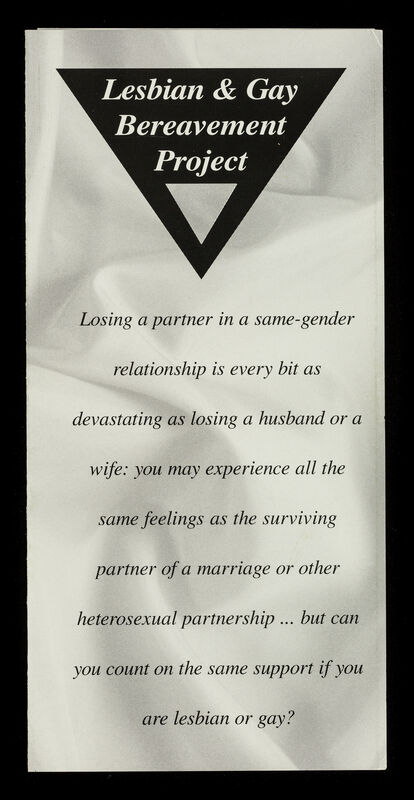
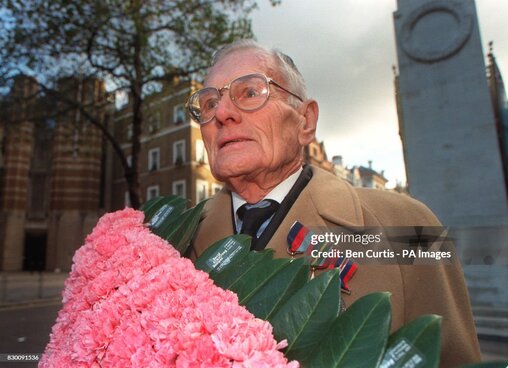



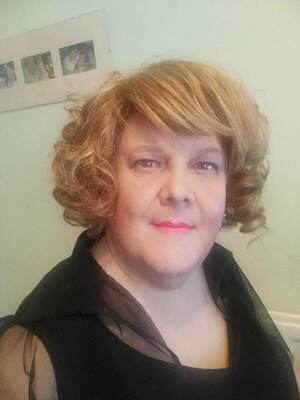
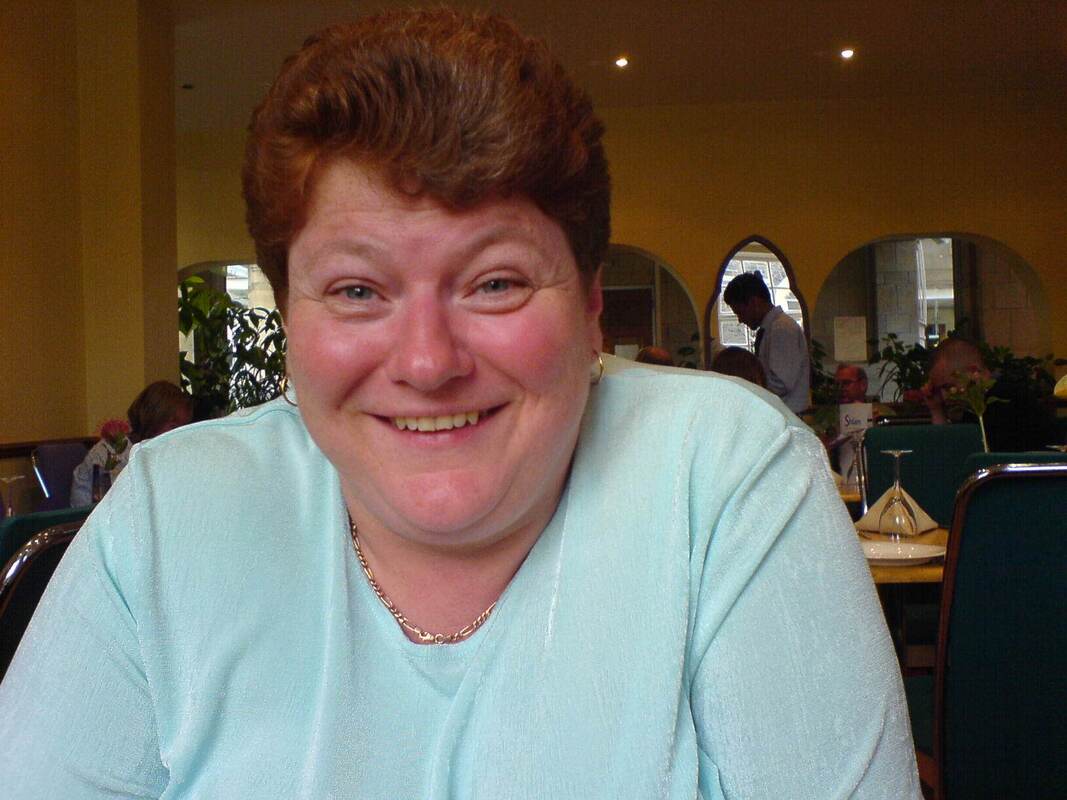
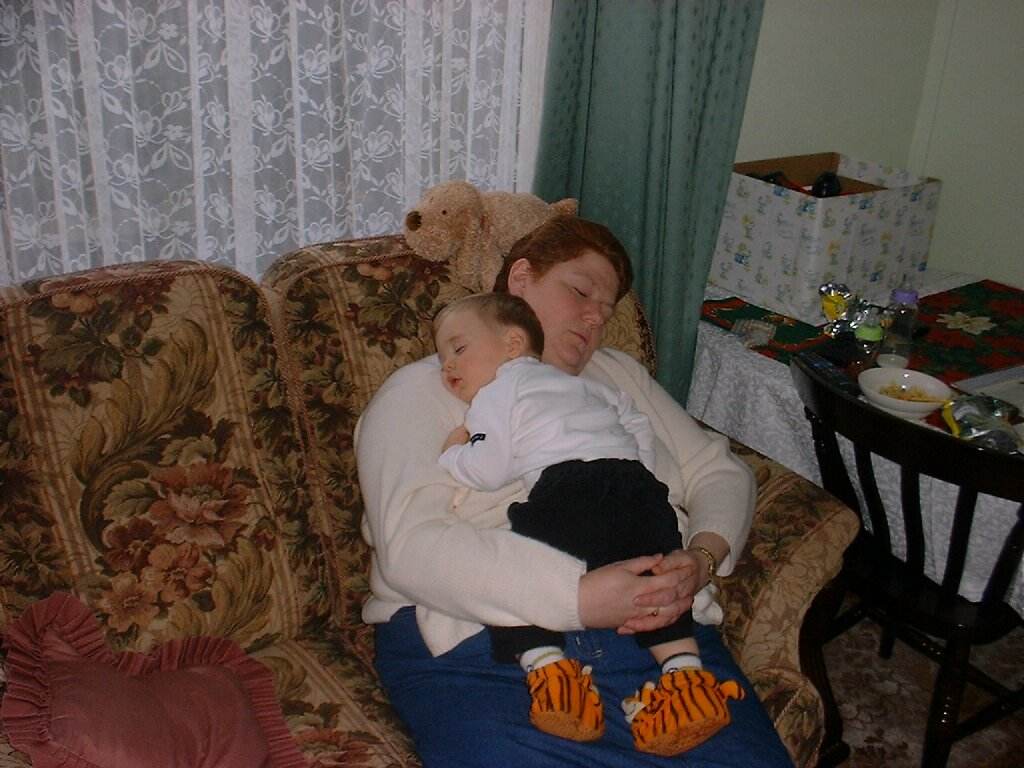
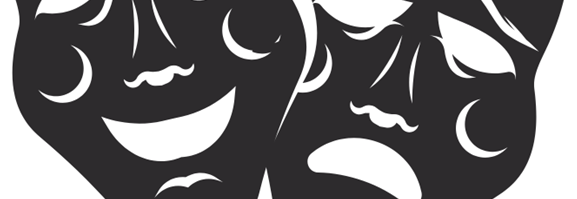


 RSS Feed
RSS Feed